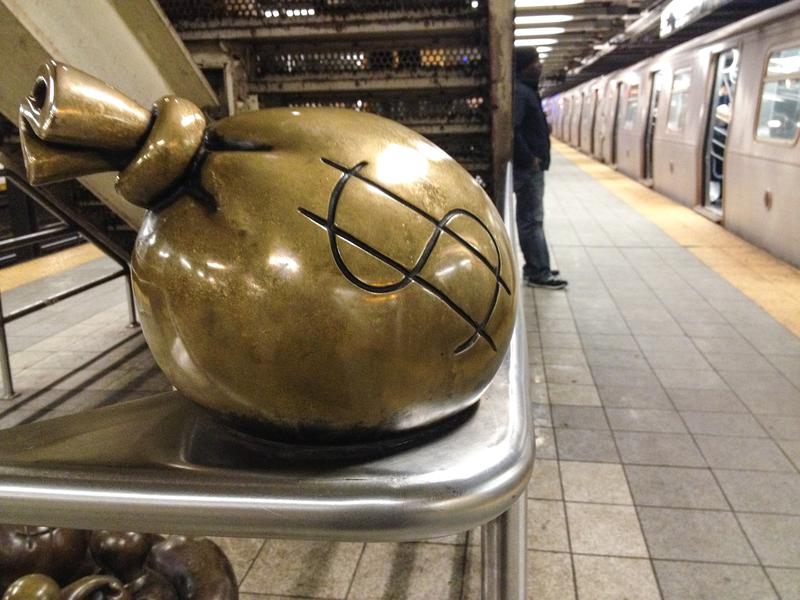 Transportation Nation
Transportation Nation
MTA Makes the Case for $32 Billion Investment

If you want New York to remain an economic powerhouse, you have to maintain its transit system.
That was the message from MTA chair Tom Prendergast as he presented the agency's five-year capital plan covering 2015-2019 to its board on Wednesday.
"The growth of New York...would not have happened at the turn of the 19th and 20th century without the subway in place," he said. "That story continues to this day. New York is the second-largest economy in the world, and a lot of that is due to the MTA network and the services we provide. We help support the economic engine of New York."
But it's not the MTA board Prendergast has to convince — it's the region. With the $32 billion plan facing a $15 billion shortfall, the agency is looking for ways to raise money — none of which were explored in the details of its capital program. (After the meeting, reporters tried to pin down an MTA spokesman as to specifics. Congestion pricing? A new tax? "You are pursuing an interesting idea," said Adam Lisberg,"but you are asking questions about it of a body that does not have the power to do that.")
While legislators alone have the power to impose new taxes and tolls, "everybody always focuses on Albany," Tom Prendergast said. "It's Albany, (but also) it's the city of New York, and it's the business leaders and stakeholders in the region."
(In case you were wondering about the MTA's borrowing capacity, it already has $34 billion worth of debt, which translates to about 17 percent of its annual budget.)
But funding streams notwithstanding, the MTA board voted voted to submit the capital program to the Capital Program Review Board, which has 90 days to approve the plan from the date of receipt. The members are: NY State Transportation Commissioner Joan McDonald, Chair; State Senator Martin J. Golden; Assemblyman Keith L. Wright; and Prescott D. Ulrey of the NYC Office of Management and Budget. (There are also two non-voting members: Assemblyman Joseph Borelli and former Senate Minority Leader Charles Fuschillo, who has yet to be replaced since he left the Senate)
But the plan is not set in stone, and now the that the Committee has it, it's fair to expect some back-and-forth.
"This is the start of a process," said Prendergast. "It's the start of a discussion."